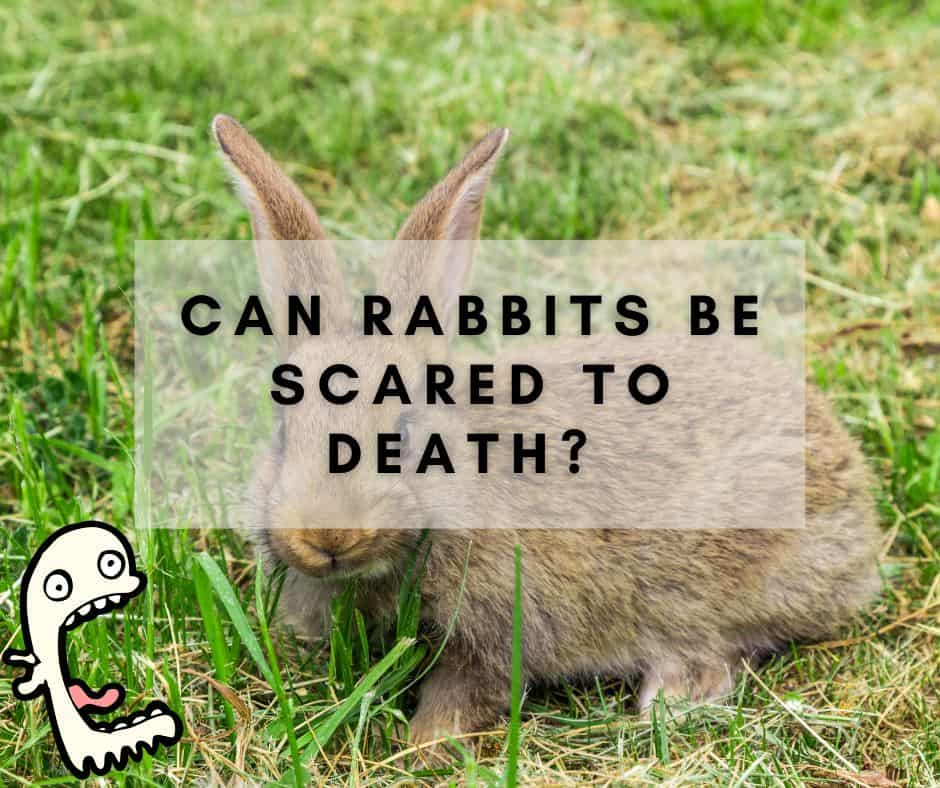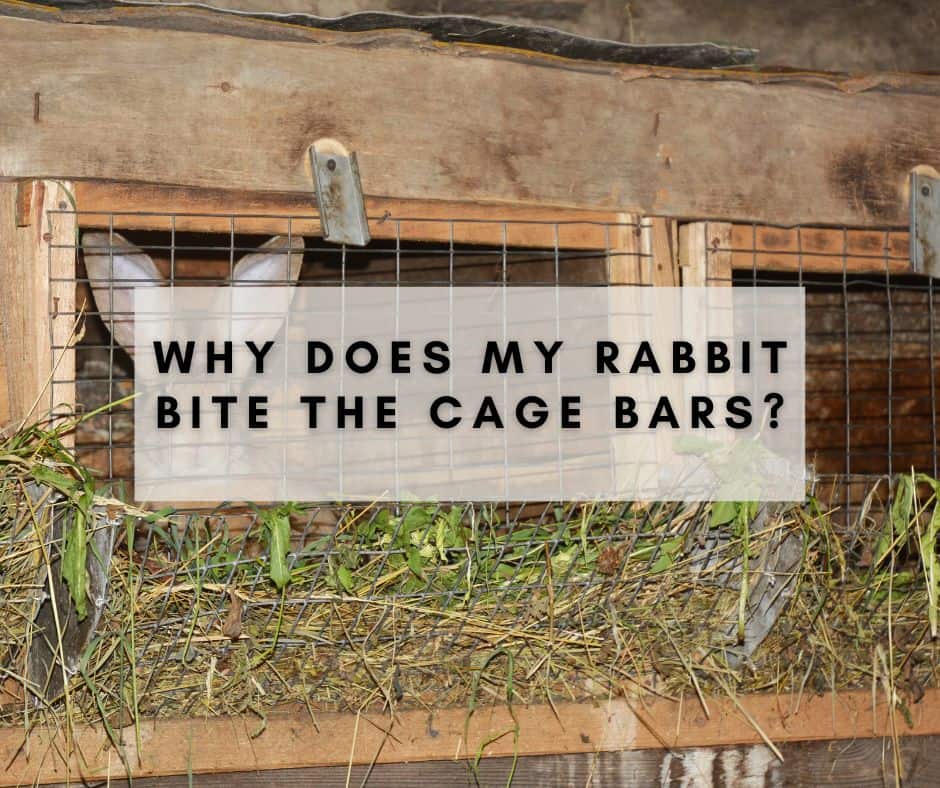Rabbits—those lovable creatures cherished for their adorable and cuddly nature—have a secret vulnerability. Despite their captivating charm, they, like any other animal, are not immune to the powerful grip of fear. But could this trepidation be so overwhelming that it drives them to an untimely demise?
While it is unusual for domestic rabbits to meet their demise solely due to fright, several common catalysts can thrust them into the clutches of fear. Loud noises, abrupt movements, and unfamiliar surroundings are just a few of the tribulations that can ignite an overwhelming sense of dread.
This exposé will delve into the profound impact of extreme fear on rabbit health and the intriguing question of whether fear alone can truly claim their lives. Additionally, we will unravel the means to shield these fragile creatures from the specter of fear-induced mortality.
Contents
Key Takeaways
- Rabbits can die from fear, but it is rare for a domestic rabbit to die of fright.
- Understanding a rabbit’s fear response is crucial in determining whether extreme fear can cause death.
- Common causes of fear in rabbits include loud noises, sudden movements, and unfamiliar environments.
Understanding Rabbit Fear Response
Rabbits are naturally prey animals and are hard-wired to be on the lookout for potential danger. They have a heightened fear response that can be triggered by various stimuli, including loud noises, sudden movements, or the presence of a predator. Understanding how rabbits respond to fear can help you keep them safe and calm.
Fight or Flight
When a bunny senses danger, it springs into a state of extreme alertness, a survival instinct often referred to as the “fight or flight” response. At such times, the bunny either attempts to dart away from the looming hazard or braces itself for a possible confrontation. During this whole process, the bunny’s pulse quickens, and a rush of adrenaline surges through its bloodstream, priming it for the impending action.
It’s essential to realize, though, that bunnies are not inherently combative creatures. They would only resort to aggression if they find themselves cornered or under serious threat. More often than not, their first instinct is to sidestep peril by scampering away or finding a place to hide.
Thump Warning
Rabbits have a unique way of expressing their fright – they thump their hind legs on the ground. This action serves as an alarm bell for fellow rabbits, signifying that danger is lurking around. Interestingly, the thumping noise can also serve as a warning to their human caretakers about a potential threat.
If you observe your bunny thumping, it’s crucial to uncover the reason behind their apprehension. It could stem from something as minor as an abrupt sound or a foreign object in their surrounding space. Dispelling the cause of their fear can soothe your bunny and avert excessive stress.
Rabbits exhibit an instinctual fear response that gets triggered by an assortment of stimuli. Grasping how rabbits react to fear can aid you in ensuring their safety and tranquility. By eradicating the fear source and offering a secure environment, you can contribute to your bunny’s sense of safety and contentment.

Common Causes of Fear in Rabbits
Rabbits, by nature, are jittery creatures that can easily be sent into a state of fear by various triggers. Fear can profoundly affect a rabbit’s well-being, and in exceptional instances, it may even result in fatality. Common triggers of fear in rabbits range from loud noises and predator presence to certain handling techniques.
Loud Noises
Bunnies boast incredibly acute hearing and can get startled by loud sounds quite easily. Natural phenomena like thunderstorms or man-made events like fireworks, or even the hum of a vacuum cleaner can send a bunny into a state of fear. When scared, rabbits might choose to scuttle off to a hiding spot or become immobile. Persistent loud noises can elevate a bunny’s heart rate, possibly leading to health complications, especially if the bunny is already under stress or anxiety.
Predators
Being prey animals, rabbits have an intrinsic fear of predators. Even when housed indoors, a predator’s presence outdoors can terrify a rabbit. When in fear, a bunny’s first instinct is to take flight or find a hiding spot. If a bunny feels cornered, it might resort to aggression in an attempt to defend itself.
Handling
While rabbits are sociable by nature, they can be extremely sensitive when it comes to being handled. A bunny unaccustomed to being picked up or held can get scared when someone attempts to do so. Inappropriate handling can leave a bunny feeling stressed or anxious, paving the way for potential health issues. Therefore, when handling a bunny, it’s crucial to maintain a gentle and serene demeanor to avoid inducing fear.
Impact of Extreme Fear on Rabbit Health
Physical Effects
When rabbits are confronted with intense fear, their bodies react aggressively, triggering a variety of physical changes that can negatively impact their health. One of the most alarming physical impacts of severe fear in rabbits is a quickened heartbeat. This escalated heart rate can instigate a condition known as “capture myopathy,” which, in the worst-case scenario, can lead to cardiac arrest and ultimately, death.
Besides an escalated heart rate, rabbits may also exhibit other physical symptoms when gripped by fear. These could range from rapid respiration, and elevated blood pressure, to muscle tightness. Over time, these physical reactions can inflict considerable harm on the rabbit’s body, culminating in various health issues.
Psychological Effects
Beyond the physical impacts, intense fear can also cause a slew of psychological effects in rabbits. A notable psychological impact of fear in rabbits is an upsurge in the production of the stress hormone, cortisol. This heightened cortisol level can lead to numerous detrimental effects on the rabbit’s mental and physical well-being.
Psychological repercussions of intense fear in rabbits could encompass conditions such as anxiety, depression, and even post-traumatic stress disorder (PTSD). These conditions can considerably compromise the rabbit’s quality of life and can also pose challenges for the rabbit in recuperating from the physical impacts of fear.
In conclusion, it’s evident that intense fear can profoundly affect the health and welfare of rabbits. Consequently, it’s incumbent on rabbit owners to endeavor to shield their rabbits from potentially fear-inducing situations and ensure they provide a secure and comforting environment for their pets.
Can Rabbits Die from Fear?
Rabbits are often regarded as sensitive creatures that are highly prone to fear. This might lead one to wonder: can fear actually cause a rabbit’s death? While the answer is yes, such occurrences are not as frequent as one might assume.
Scientific Evidence
Scientific research affirms that rabbits can undergo a variety of physiological changes in response to fear, including an elevated heart rate, increased blood pressure, and a surge in stress hormones. These responses form part of the body’s inherent “fight or flight” reaction to perceived dangers.
In certain instances, the stress reaction can be so intense that it induces a potentially lethal condition known as “capture myopathy.” This condition typically transpires when an animal experiences extreme stress, like being pursued by a predator or trapped in an enclosed area.
Capture myopathy can lead to a series of symptoms, including muscle deterioration, kidney failure, and cardiac arrest. While it’s infrequent for domestic rabbits to experience such levels of stress, there are situations where it could occur.
Anecdotal Evidence
Anecdotal accounts suggest that rabbits can, indeed, succumb to fear in specific scenarios. For instance, if a rabbit is subjected to loud sounds, like fireworks or thunderstorms, it may become extremely scared and exhibit a range of stress-related symptoms.
Likewise, suppose a rabbit is being chased by a predator or confined in a restricted space. In that case, it may undergo intense stress that could escalate to capture myopathy and potentially lead to fatal outcomes.
However, it’s crucial to note that not all rabbits react to fear identically. Some rabbits might be more resilient than others and manage to handle stressful situations without adverse effects.
In conclusion, while it’s possible for rabbits to die from fear, it’s not a typical occurrence. Therefore, it’s imperative for rabbit owners to cultivate a safe and secure environment for their pets, and minimize exposure to potential stress-inducing situations whenever feasible.

Preventing Fear-Induced Death in Rabbits
Rabbits, due to their timid nature, can indeed die from fear. It’s thus vital to take proactive steps to guard against such fear-induced fatalities. Here’s how you can help:
Creating a Safe Environment
Establishing a secure and safe environment is crucial to protect rabbits from fear-induced fatalities. Given their instinctual position as prey, rabbits can easily be frightened. Therefore, providing them a safe and secure environment is of utmost importance. Below are a few tips to create a safe haven:
- Keeping your rabbit indoors can enhance their sense of security and give them more control over their surroundings.
- Provide sheltered areas such as a cardboard box or a tunnel, offering a safe retreat when they feel scared.
- Maintain a clean habitat for your rabbit that is free of potential hazards.
- Loud noises, such as those from vacuum cleaners or blaring music, can terrify your rabbit, so it’s best to avoid these.
Proper Handling
Correct handling techniques can go a long way in preventing fear-induced death in rabbits. Here are some tips for proper handling:
- Approach your rabbit gently and calmly to avoid startling them.
- When lifting them, support your rabbit’s body to allay feelings of insecurity or fear.
- Steer clear of abrupt movements or loud sounds that can alarm your rabbit.
- Never lift your rabbit by its ears or scruff, as it can cause them discomfort and pain.
Desensitization
Desensitization, the process of gradually introducing your rabbit to potentially scary situations or stimuli, can be a valuable tool. Here are some tips for desensitization:
- Begin with mild and non-threatening stimuli like a new toy or a different food variant.
- Increase the intensity of stimuli gradually, such as introducing new people or pets to their environment.
- Reward your rabbit with treats or praise when they display comfort with the new stimuli.
It’s essential to prevent fear-induced deaths in rabbits. By crafting a safe environment, employing gentle handling techniques, and using desensitization strategies, we can significantly mitigate the risk. By offering your rabbit a secure and safe space, you play a crucial role in ensuring their overall happiness and well-being.
Final Thoughts
Rabbits, indeed, can be so frightened that it results in their demise. However, this is much less prevalent than popularly assumed. While fear can lead to a fatal outcome, for a domestic rabbit, such instances are quite rare unless there’s an unescapable predatory threat nearby.
Triggers such as sudden movements, loud sounds, or strange surroundings can induce stress and anxiety in rabbits. Such heightened states of stress can potentially lead to a host of health complications, from heart conditions to digestive issues. Consequently, it falls upon rabbit owners to ensure a serene and safe habitat for their furry companions.
Should a rabbit show signs of stress or anxiety – panting, hiding, or a refusal to eat – it becomes crucial to identify and tackle the root cause of this behavior. This may require either eliminating the stressor or furnishing a safe retreat for the rabbit to seek comfort in.
Furthermore, consistent exercise, interaction, and mental stimulation can significantly decrease a rabbit’s stress levels, thereby enhancing its overall well-being. A balanced diet, coupled with regular veterinary checks, is also essential to maintain the rabbit’s health and stave off any stress-related illnesses.
In summary, while the threat of a rabbit dying from fear does exist, it’s not a common phenomenon. By cultivating a safe, stress-free environment, rabbit owners can go a long way in ensuring their pets enjoy a life that is not just healthy, but also content.




